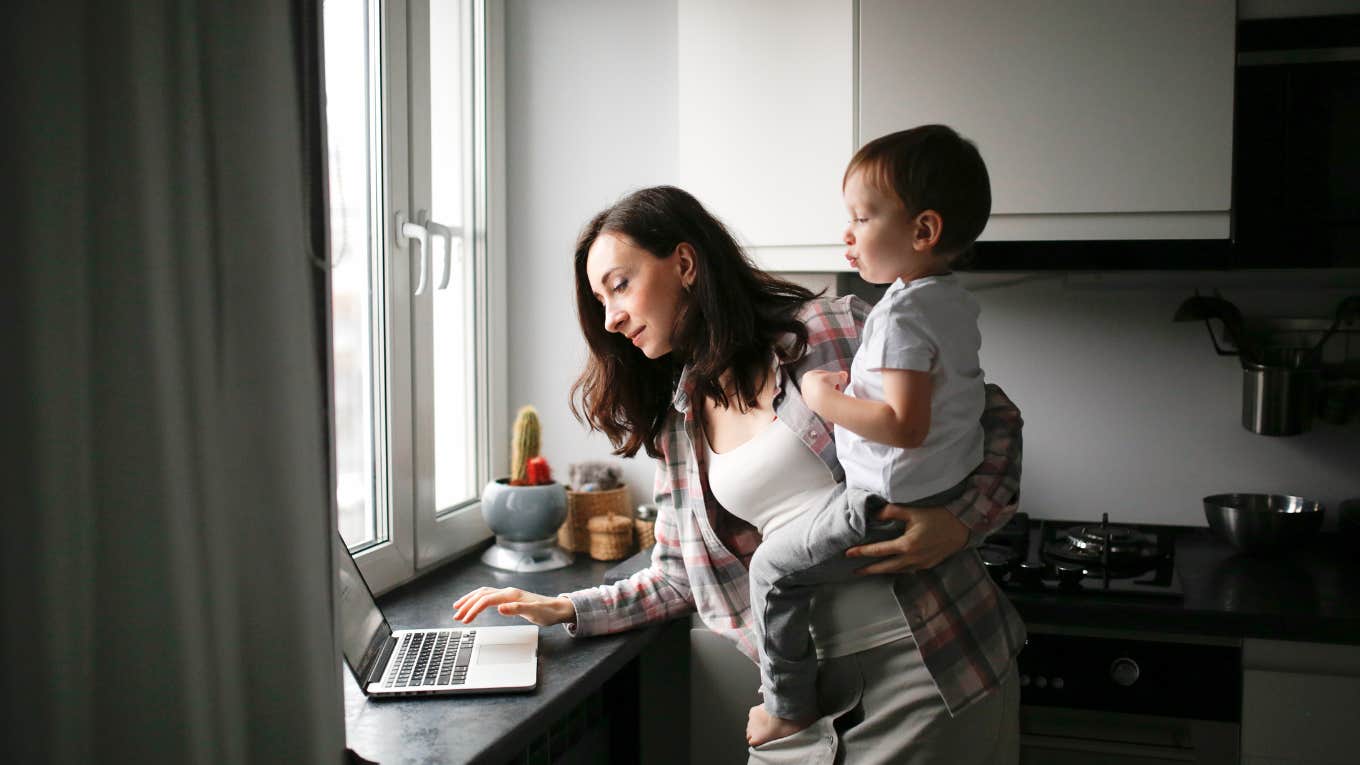Single Man Without Children Says Being A Stay-At-Home Mom Is Not A Job — ‘It’s A Privilege’
He claimed that compared to single mothers who work full-time jobs, being a stay-at-home mother should be a piece of cake.
 Natalia Lebedinskaia / Shutterstock
Natalia Lebedinskaia / Shutterstock A man sparked a heated response from the public after admitting that he didn't think stay-at-home mothers have to do any real work.
In a TikTok video, Jared, a single man with no children of his own, was criticized for talking down on stay-at-home mothers, when the reality is that being a parent full-time is an undervalued and underappreciated role, especially for women.
He claimed that being a stay-at-home mother is a privilege and not a real job.
"Being a stay-at-home mom is not a job whatsoever. It's a privilege," Jared bluntly stated at the start of his video. "You're privileged enough to stay home because you have someone that provides a life for you that allows you to do so."
He claimed that stay-at-home mothers have nothing on single moms who have "actual jobs" and work tirelessly to provide for their children. He acknowledged that staying at home is something taken for granted, explaining that he was laid off from work for four months and being at home all the time was incredibly "easy."
"I can do all of the daily responsibilities that come with taking care of a house in no time and other than that, all you have to do is watch your kid, who, when they get to a certain age, they pretty much watch themselves," he continued.
He argued that if the roles are reversed, stay-at-home dads are often looked at as being "lazy" for not providing for the household, while women complain that being a stay-at-home mother is "the hardest job in the world."
"Make that make sense to me," he added. "I'm not knocking stay-at-home mothers, I have a lot of respect for them and I honestly think the world needs more of them. You can't just give me, 'It's a full-time job.' Because someone that has a job takes care of you."
Other creators criticized his opinion and pointed out that being a stay-at-home mother is not what it seems.
In a response to Jared's video, a content creator under the handle The Speech Prof argued that just because he had to stay home for four months after being laid off, doesn't equate to the daily responsibilities that mothers have in their own households.
"It's a privilege for you, you're right. It's a privilege for you," he pointed out. "From what I gathered this guy is single and without children. That's the comparisons he's basing this on."
He claimed that as someone who is both single and doesn't have any children, Jared's opinion on stay-at-home mothers and how "easy" it is for them to raise and take care of their family shouldn't have been said in the first place, especially since he is unaware of just how time-consuming and exhausting the role is.
In another video, a content creator named Brent broke down where exactly the "privilege" for stay-at-home parents comes from, explaining that the real privilege comes from giving up thousands of dollars of lifetime income and being in a position where other people think that their work isn't as valuable as parents who work full-time.
Breaking down the opportunity cost for being a stay-at-home parent in West Virginia, where Jared is from, Brent explained that the median income for most households is $26,000, which after tax is around $22,000. For licensed childcare in West Virginia, it can range from $10,000 to $16,000, and simply taking care of childcare means that a stay-at-home mothers' take-home is less than minimum wage.
"It's why we've seen a rise of stay-at-home parents as childcare costs increase. It's simply not worth it to provide all of this house care, plus the childcare working a full-time job. The true sacrifice that the stay-at-home parent is making is about $500,000 of income. Stay-at-home parenting is unpaid, not because it is a privilege but because we couldn't afford it if it wasn't."
For many people, it can be hard to grasp just how demanding being a stay-at-home parent really is, especially for women.
A Gallup poll of more than 60,000 U.S. women found that stay-at-home moms experienced depression, sadness, stress, and anger at a higher rate than working moms. The duties of a stay-at-home mother don't end at 5 p.m., like the standard corporate jobs in America, but require 24/7 attentiveness.
Every journey into motherhood is different, and people can acknowledge the struggles that single mothers have, while also agreeing that stay-at-home mothers can have their own challenges too. It shouldn't be a battle of, "Who has it worse?" because there is simply no winner.
The true privilege, as explained by others, comes from sacrificing significant lifetime income and making a substantial contribution to the family's well-being.
We should all be able to understand the nuances and complexities of the various roles that come with motherhood and offer both support and praise for women who dedicate their lives to raising their children, whether they are working parents or stay-at-home ones.
Nia Tipton is a Chicago-based entertainment, news, and lifestyle writer whose work delves into modern-day issues and experiences.

